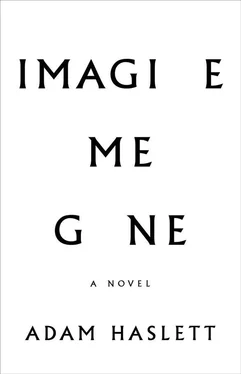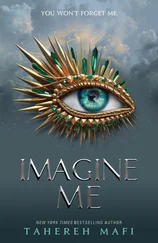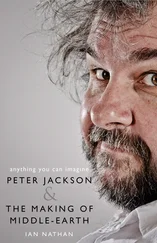Do you have your own kids, she asked, hopefully. Yes, I said, I have a son and a daughter. They’re six and eight. Oh, that’s just the best, she said, and laughed. By the time they get to this one’s age they’re nothing but trouble. Though he’s better than his sister. She’s already living at her boyfriend’s and there wasn’t no use trying to stop her. You must be run off your feet with those two, she said, and here you are taking time to help Jaylen.
They don’t live with me, I said, they’re with their mother in Chicago. I go there to visit them. I could feel Jaylen’s eyes on me, but he said nothing. Well, at least you do that, she said, philosophically, at least you do that. Sweat flowed down my torso and I could only hope she didn’t smell it. It’s Jaylen’s turn to make dinner, she said, he’s doing tacos. You’d be welcome to stay.
After a few extra Klonopin in the bathroom, the scene became quite ordinary: the overhead light in the kitchen, the shredded Kraft cheese, Jaylen’s dogging his mother for pestering him not to eat so fast. Even the conversation about what I studied, which usually confused people, seemed ordinary enough. When you live most days alone in a room with a tiger kept from pouncing on you by nothing more than your constant stare, being poured a cup of Pepsi can feel almost Christlike in its mercy. It seemed perfectly natural to tell his mother, when she asked, that I had grown up on the south side of Chicago in an extended, mixed-race family. Oh, Flipper, Caleigh would say later, and we would argue. But there I was, eating dinner with the two of them, and we were jovial.
Despite my repeated insistence, they wouldn’t let me wash the dishes. They mistook it for a chore. They didn’t know the pleasure it would give me, or what that pleasure would count for. But I was their guest, and so I desisted. It was already dark out, the early darkness of winter evenings, when six o’clock seems like midnight. Jaylen’s mother turned on the outside light, and I thanked her for the hospitality on the way out to my car. Be safe out there, she said.
Driving back to the apartment, I wondered if it was the anxiolytics that had padded my longing with enough cotton wool to allow for a bit of glancing human contact without injury or fever, or if letting go a bit of the truth is what had helped me to reach that clearing.
What do you fear when you fear everything? Time passing and not passing. Death and life. I could say my lungs never filled with enough air, no matter how many puffs of my inhaler I took. Or that my thoughts moved too quickly to complete, severed by a perpetual vigilance. But even to say this would abet the lie that terror can be described, when anyone who’s ever known it knows that it has no components but is instead everywhere inside you all the time, until you can recognize yourself only by the tensions that string one minute to the next. And yet I keep lying, by describing, because how else can I avoid this second, and the one after it? This being the condition itself: the relentless need to escape a moment that never ends.
I woke the next morning at five in soaked sheets and a panic. With water from the bedside table, I took my last Klonopin and went straight to the stove to put the kettle on for kratom. I did the yoga stretches Celia had taught me, and after that I sat upright in a hard-backed chair for five minutes trying to breathe intentionally, as it said to do in the pamphlet she’d given me on self-soothing. For some reason, when I finished I was still thirty-six, single, and about to die. I called Dr. Greenman for a refill but the secretary in Mental Hygiene said she was out for the day. I had run the morning routine but still the terror reigned. It was then that I checked my e-mail and read the message from the university saying that pursuant to a letter from the Department of Education about a previously undisclosed episode of default, they were putting a hold on the loan disbursement I needed for my rent and food.
When I managed to focus again on the screen, I looked up Dr. Greenman’s home address, and drove to her house. It was a black-and-white Victorian with gingerbread trim and a bevy of shrubs clipped to the nines. She answered the door in a University of Wisconsin sweatshirt and a pair of burnt-orange wide-wales. The lenses of her glasses were big enough to serve demitasse off. Michael, she said, I don’t see patients at home. You need to make an appointment through the clinic. I just need a refill, I told her, then I can get through the weekend and come in next week. We’ve talked about this, she said. I can’t write prescriptions on demand, certainly not from my house. And if I’d taken a bullet to the groin, I wanted to say, you’d tell me to reschedule? Why don’t I just bleed out on your hedge, and we’ll call it a breakdown? But I couldn’t be rude or unkind to her. Her affect remained warm, even as she sawed at the rope I was hanging from. Are you thinking of hurting yourself? she asked. Because if you are you need to go to the ER and tell them that I sent you. It was thirty degrees out, but I might as well have been weight training in Lagos for the river of sweat running down my back. Michael, she said, putting her hand on my forearm, as if I were a person at that moment, rather than a nerve, I want to help you, but I can’t do it like this. If things get bad, she said. They are very bad, I said. I understand, she said. If things get worse, and you think you’re in danger, you need to go to the hospital. I can’t give you more of the drug, but I can meet you on Monday morning to discuss all this. We can come up with a plan. Right now I have my daughter with me, and I need to go back inside.
Caleigh was at work, and after half an hour of imploring me to just get in bed and watch X-Files reruns, she said she really, really had to get off the phone. Celia didn’t pick up. Nor did Alec. I got my mother’s machine but didn’t want to leave a message that might upset her.
I don’t know how long I stared at the picture of Bethany on my desktop screen before dialing her number. It might have been an hour. I examined the pixels of her teeth as I listened to her phone ring. Miraculously, after all her years of silence, she answered. She was saying hello, I was saying it’s Michael and asking how she was, we were conversing. At long, long last. She had moved to Houston and finished college there. She had a job at a health club. I couldn’t see her working at a health club, but she didn’t sound as if she were dissembling. She asked about me and I said things were going okay, that I’d finally got into grad school and was trying to write. Are you going out with anyone? I asked, which of course I shouldn’t have, period, let alone almost right away, but I had to know because if she was single and she had picked up the phone, then the vicious little engine in my chest idling at breakneck speeds might shut down long enough to let my eyes rest. You didn’t call to ask that, did you? she said. No, no, I said, I’m just curious, I just want to know how you’re doing. Okay, then, she said, if you say so. I’m engaged, actually. I think you’d like her.
The liquor store took my credit card with flying colors. Mostly the light amber of Cutty Sark and the shaking blue script of my signature. When I could be sure no one was looking, I sipped from the bottle in the parking lot, turning up the volume on Norma Fraser’s “The First Cut Is the Deepest” (is it self-pity when it provides no comfort?). Somehow I’d never become an alcoholic. Luck of the draw. But as a major CNS depressant, liquor has its advantages. It struck my reptile brain square on its diamond head. Booze — the ancient dimmer of fear and sorrow. The granny of all psychoactive meds, a blunt old hag toddling down out of the mountains with a demented smile and a club. World? she sneers. What world? And swings her cudgel at your skull.
Читать дальше












